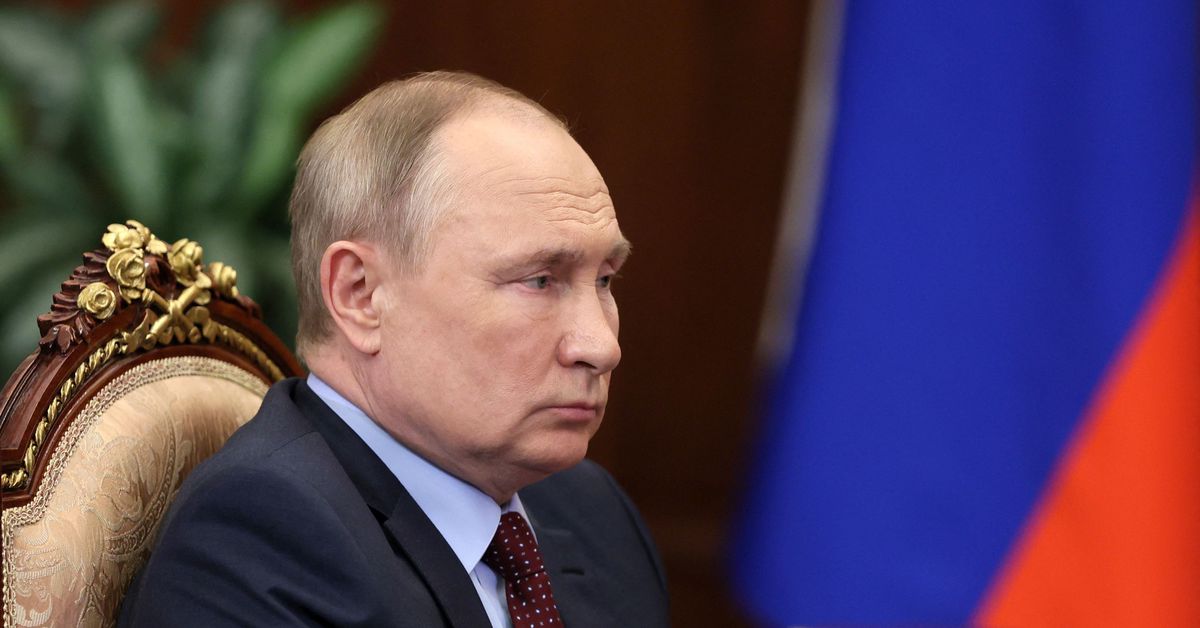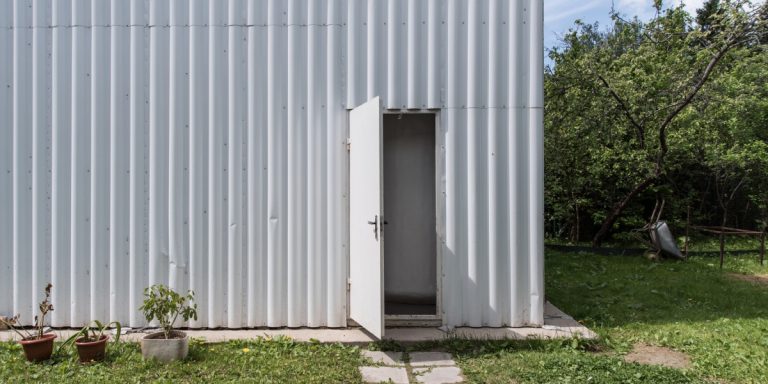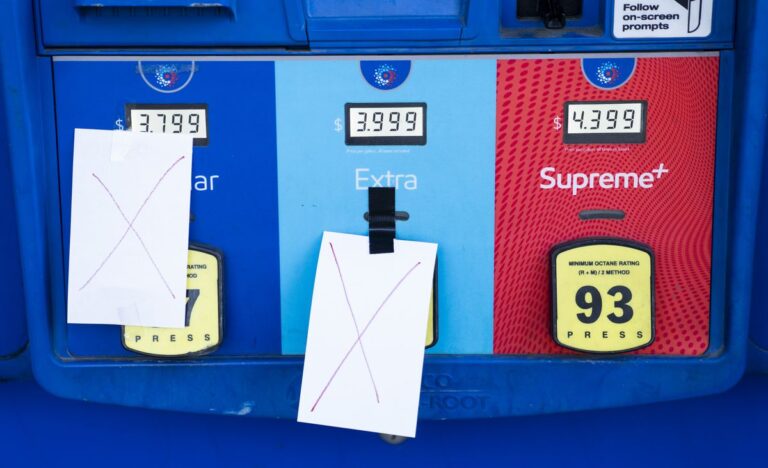
Sanctions are one of the key ways the US and Europe are retaliating against Russia for its invasion of Ukraine. These sanctions are throttling the Russian economy, and they’re particularly making life and business difficult for Russia’s oligarchs, an elite group of uber-wealthy people who began wielding enormous influence on Russian politics as they got rich during the privatization of the post-Soviet state.
Foreign governments around the world are seizing many oligarchs’ assets and yachts, banning them from travel, and cutting them off from doing most business with the US and Europe. The goal is to squeeze Russia’s wealthiest citizens, to censure and compel them to pressure Russia’s President Vladimir Putin to end his campaign against Ukraine.
“It’s the trillion-dollar question,” said Oliver Bullough, a journalist who writes a newsletter about oligarchy at Coda. “Can these people restrain Putin?”
But it’s important to realize that since Putin was elected in 2000, the oligarchy in Russia doesn’t work the way it used to; its members have a lot less power and influence than they once did. These punishing sanctions have so far prompted only muted comments about Ukraine from a few oligarchs, many of whom are based outside of Russia.
“Putin has brought oligarchy in-house,” Bullough told Recode. “And now we’ve got much more of a system akin to the Tudor court of Henry VIII, with a king and then a number of aristocrats around him who own their property as long as he’s prepared to tolerate them.”
“The word ‘oligarchy’ is a bit out of date, in a weird way, but we don’t have a better one,” Bullough added.
The limited power of Putin’s oligarchs 2.0
Since Russia invaded Ukraine last month, the world has been grappling with questions of how the conflict might end, and whether Putin’s advisers or the country’s class of elites — once so influential within the Kremlin — could play a part.
But the idea that individual oligarchs could sway Putin now is a misunderstanding of modern Russia, said Ben Judah, a senior fellow at the Atlantic Council and author of Fragile Empire: How Russia Fell In and Out of Love with Vladimir Putin. “That’s how Russia operated 15 or 20 years ago,” Judah said, “not how Russia operates today.”
Reining in Russia’s oligarchs was something Putin promised during his first campaign for president, and he didn’t wait long to start. In 2003, Putin arrested and jailed Mikhail Khodorkovsky, who owned a 78 percent stake in Russia’s massive Yukos oil company and was at the time Russia’s wealthiest man. Khodorkovsky was officially charged with financial crimes, but he was also funding Putin’s opposition parties.
The example Putin set by arresting Khodorkovsky was clear: “The oligarchs essentially realized that they owned their wealth only as long as [Putin] wanted them to own it. That changed their entire approach to politics. It also increased their motivation to get more wealth outside of Russia, to get as much as possible offshore, where it would be safe,” Bullough told Recode.
Meanwhile, a new kind of oligarch gained power: the siloviki, which mainly describes businessmen who have connections to the Federal Security Service, the police, and the military. The siloviki were instrumental in Putin’s consolidation of power, serving as his muscle. They’ve become extremely wealthy thanks to their proximity to the president, creating a class of “silovarchs” who are even more dependent on Putin than oligarchs who accumulated their wealth in the 1990s.
All Russian oligarchs’ power and wealth is tenuous, and they know it. That’s why the limited number who have spoken up so far about the war are ones who hold foreign passports or reside outside of Russia. Some oligarchs, and even their children, have called for peace — but without explicitly condemning Putin.
Oleg Deripaska, a Russian industrialist currently worth a little over $2 billion, according to Forbes, called peace “very important.” “The whole world will be different after these events and Russia will be different,” he wrote on Telegram. He was sanctioned by the US government back in 2018 for his ties to Putin in the wake of allegations of Russian interference in the 2016 US election.
Mikhail Fridman, founder of Alfa Bank, called the invasion a tragedy during a press conference. But when asked about using his influence to put pressure on the Kremlin, Fridman responded, “You should understand that it’s a very sensitive issue,” and said that he could not put his partners and staff at risk by commenting on Putin. He was sanctioned by the EU on February 28.
Evgeny Lebedev, who owns British newspapers the Independent and the Evening Standard, wrote an op-ed in the Standard imploring Putin to stop the war. Lebedev holds dual Russian and British citizenship; he’s also a member of the British peerage. He has not been sanctioned.
Again, these measured reactions from oligarchs shouldn’t come as a surprise. Stanislav Markus, a University of South Carolina professor who has extensively researched Russia’s oligarchs, told Recode that direct criticism of Putin would be “a pretty dangerous position to hold.”
“When it came to this decision to go all-in in Ukraine, Putin took the decision essentially alone,” said Judah, the Atlantic Council senior fellow. “Over the last few years, Putin has become increasingly distant from the old so-called inner circle and the Russian elite in general.”
Judah cited a scene from the security council meeting Putin called on February 21, shortly before invading Ukraine. Sergey Naryshkin, director of Russia’s Foreign Intelligence Service, stammered when Putin asked if he supported recognizing the independence of Donetsk and Luhansk, two Ukrainian territories that have been controlled by pro-Russia rebels for almost a decade.
“The way Putin spoke to him made him so scared that he forgot what topic was being discussed,” Judah said. “So if Sergey Naryshkin is that frightened of Putin, seemingly that distanced from him, there’s very little chance for those businessmen to simply walk in and stop him.”
The narrative that Putin’s siloviki — or other oligarchs — could meaningfully dissent is “wishful thinking,” Judah said.
“[The sanctions] may indeed cause grumbling and dissatisfaction and fear in the political system,” he continued. But when it comes to what might happen with Putin, he said we should think about “what happens to dictators, not what happens to strongmen with governments.”
How Putin’s war could influence power in the long run
If this war truly was Putin’s decision alone, then he’s both in control and in isolation.
Squeezing Russia’s oligarchs may not lead to Putin doing an about-face in a war that he’s already indicated he’s willing to sacrifice so much for. But that doesn’t necessarily mean it won’t have an impact later. These sanctions will have aftershocks; if anything, they reveal to the Russian oligarchy the limits of their power and how their fortunes are tied up with an authoritarian who’s begun closing them off from almost the rest of the world in pursuit of war.
How they’ll react is an open question.
Markus, whose research investigates what Russia’s oligarchs want and how they try to influence the government, told Recode that part of the reason they haven’t pushed back often against their government is that the existing global financial playground lets them keep so much capital offshore. With so much of their wealth stashed outside of the Kremlin’s grip, there’s less of a pressing need to demand that the Kremlin reform.
Prolonged sanctions could increase desire among Russia’s elite for institutional change, even as achieving it remains difficult. Over the years, Putin has shown them how easy it is to fall out of his favor, and the dire consequences of that.
“If before, they thought, ‘Whatever the Kremlin does, I still have my profitable trade with the United States or Europe or whomever, I don’t need to get political in Russia,’ now, more and more, they’re being pushed against the wall,” Markus said.






